I completed my trip to Costa Rica on March 19, 2023. This was one of the most exciting trips I have been on. The trip was to study the food and culture of Costa Rica, but I did not think about other learning experiences I would have during this time. To fully explain this trip would take multiple pages and numerous pictures to do it justice. I will do my best to summarize my experience, but there is much to cover.
One reason for this trip was to see how the food and culture go together. Costa Rica is known for their health and is one country with a Blue Zone. A lecture I attended on the typical diet showed that most food consumed is carbohydrates. They eat a lot of rice and beans, and so did we. This diet, specifically in the blue zones, contributes to the health of those communities and the longer lifespans in the area. Fresh fruits and vegetables are abundant, and they are inexpensive and located everywhere. Access to healthy foods helps with health and can contribute to the overall health of Costa Rica.
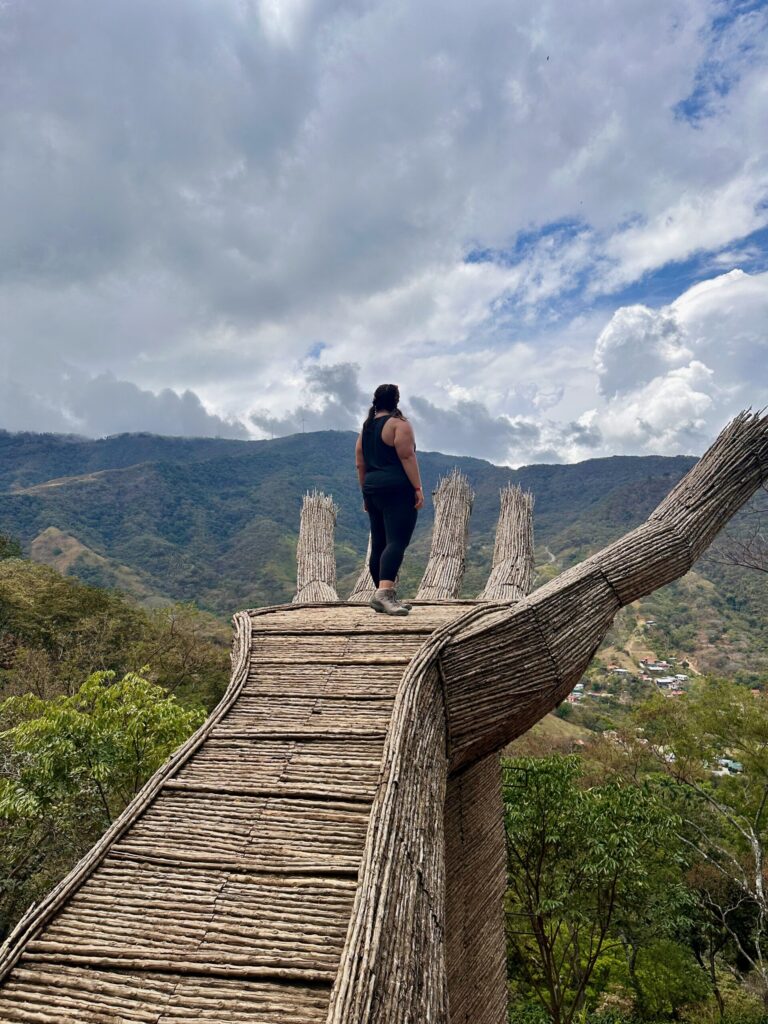
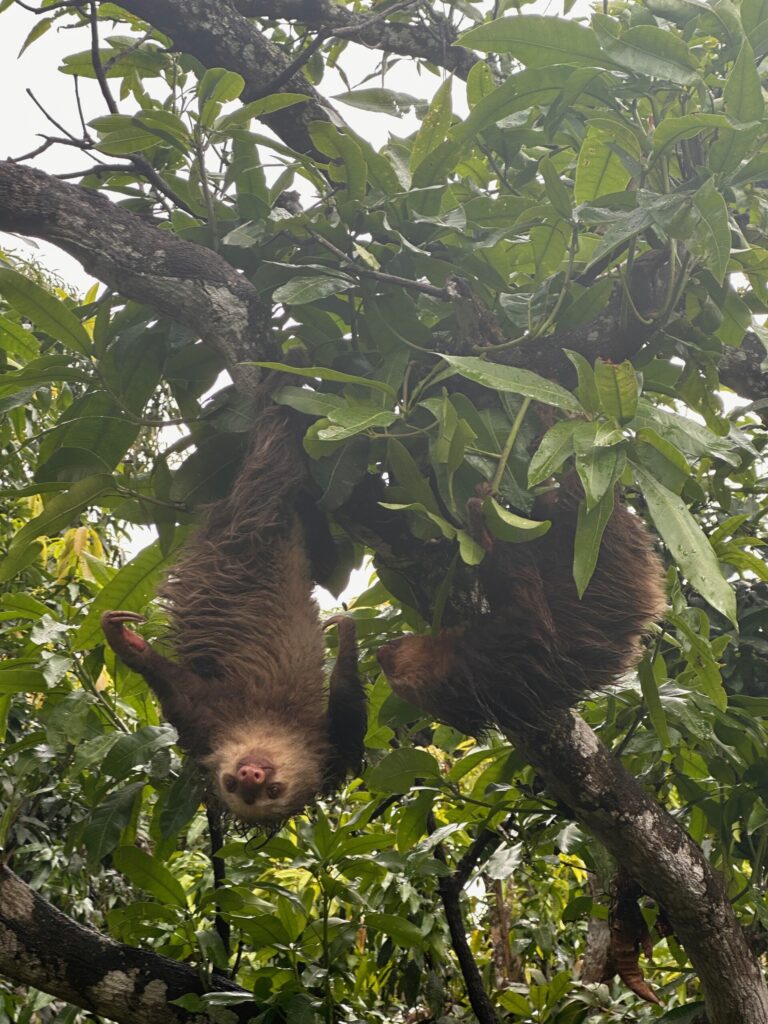
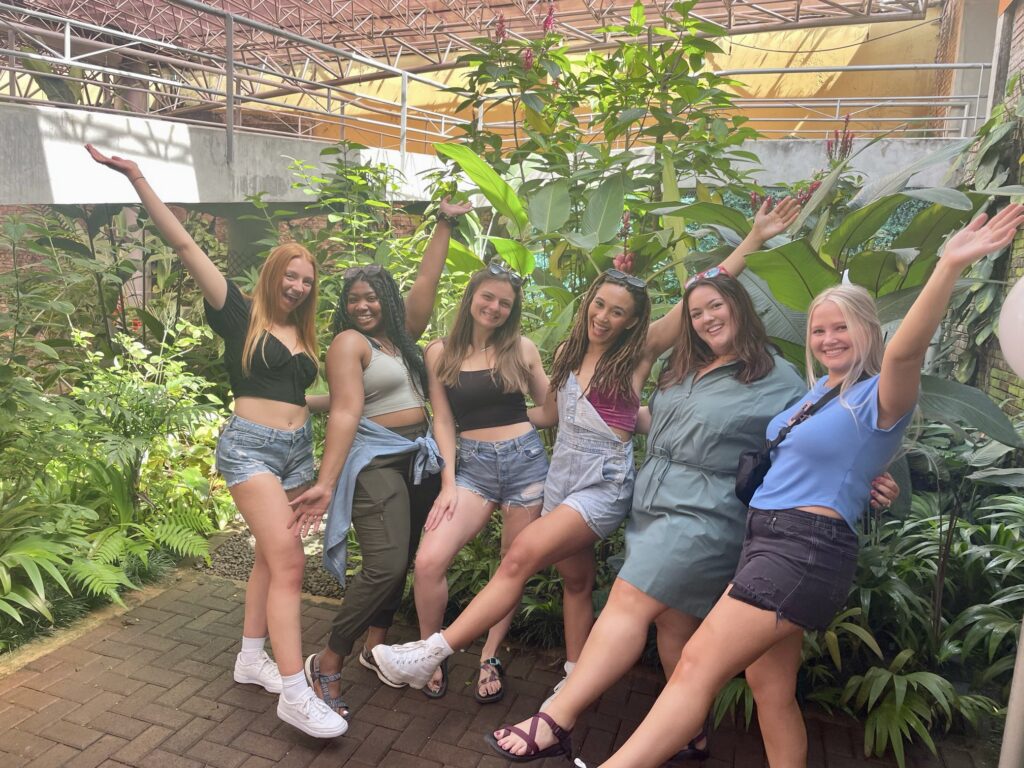
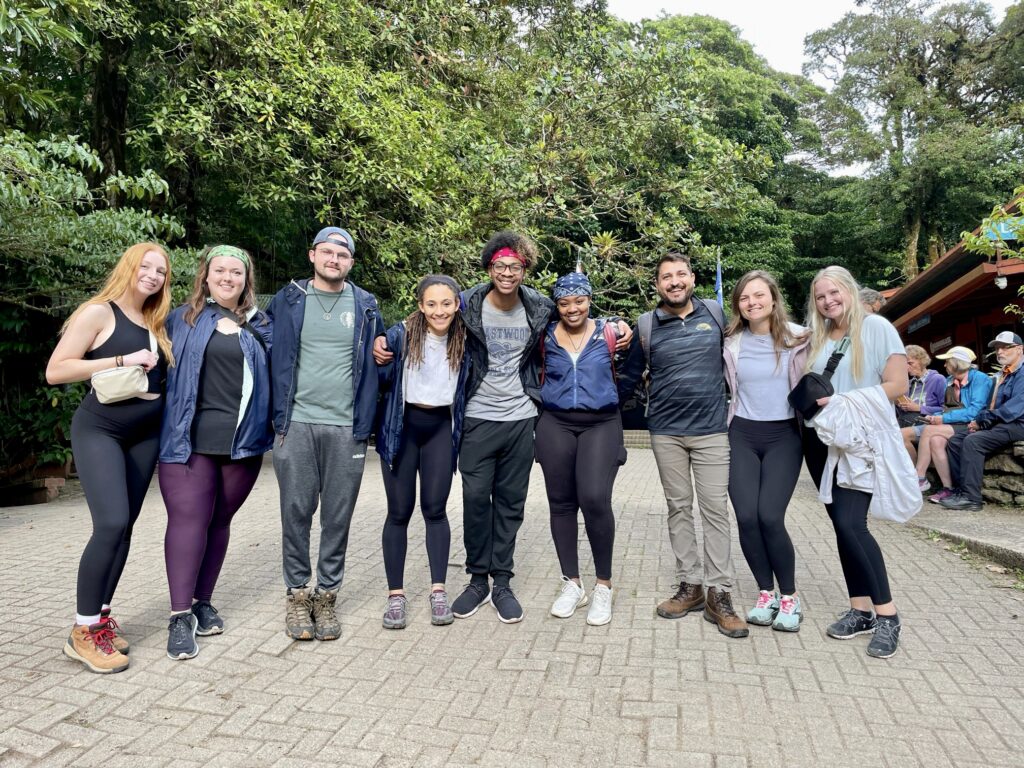
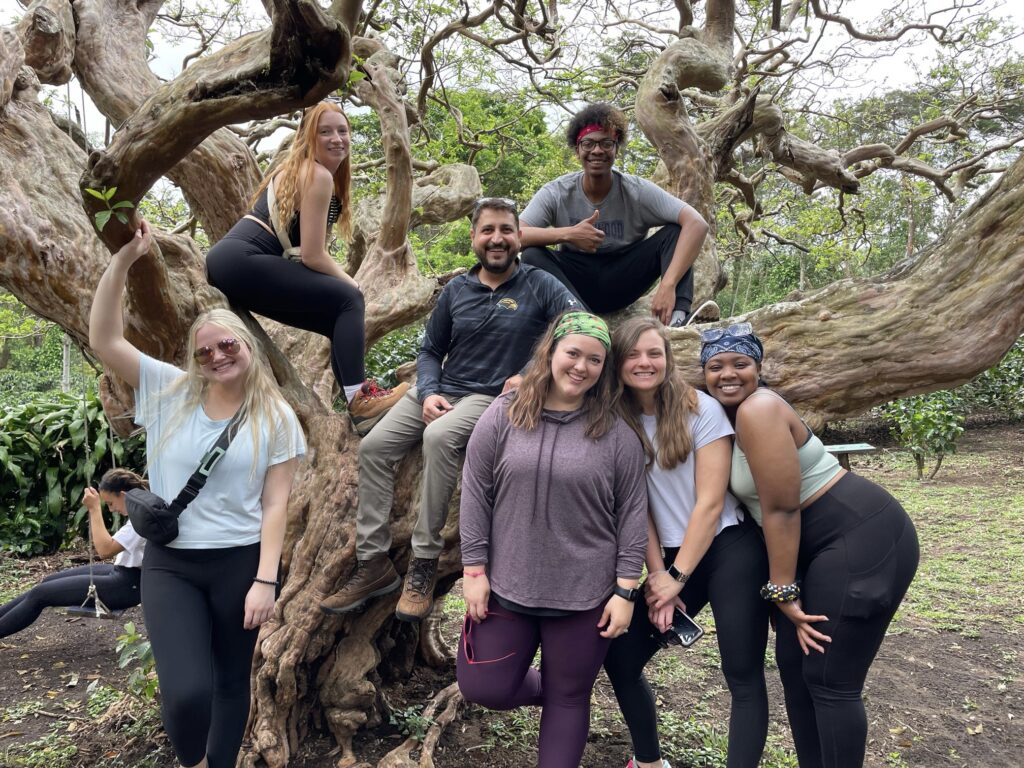
One of the most shocking experiences was at the food bank we volunteered at. For my PHE, one of my projects is to compare the Costa Rican one to the United States. They were significantly different. The language barrier caused communication issues, and we needed more introduction or instructions on what to do and had to figure it out as we went. There was a concern because we had to handle chemicals with our bare hands. This is different from the local food bank because, in Chattanooga, the food bank only has food. In Costa Rica, they had an area for food and another for household and personal goods. The boxes we had to sort through had open bags of detergents and other cleaning supplies like bleach. We were not given protective equipment like aprons or gloves when handling these items. One box, a bleach container, spilled everywhere and got onto my clothes. After this, a few of us also had rashes due to exposure to these chemicals. This was an interesting experience because, generally, if there were a chance of chemical exposure you would be given information on protection and how to handle these substances. It felt very unorganized and overwhelming.
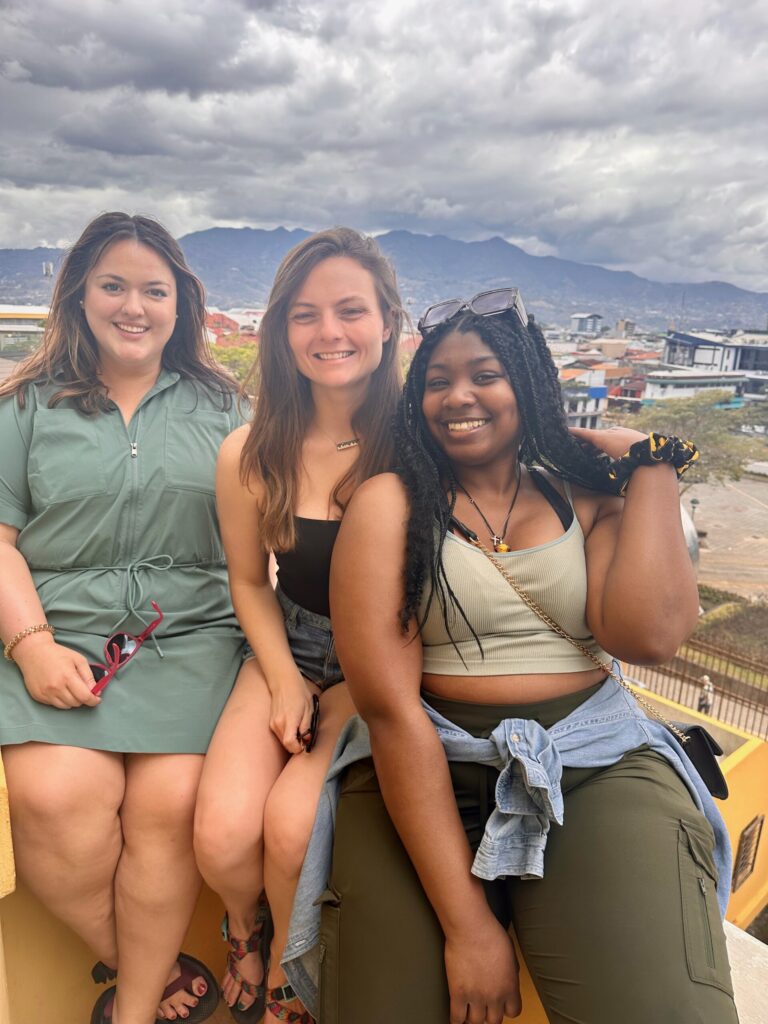
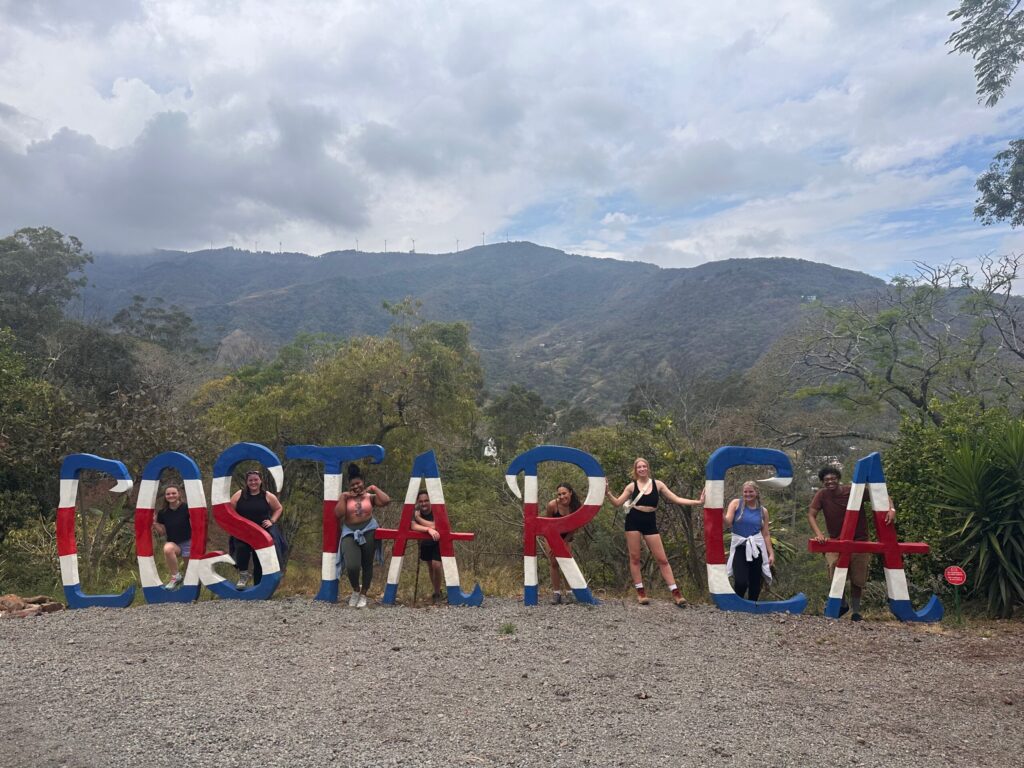
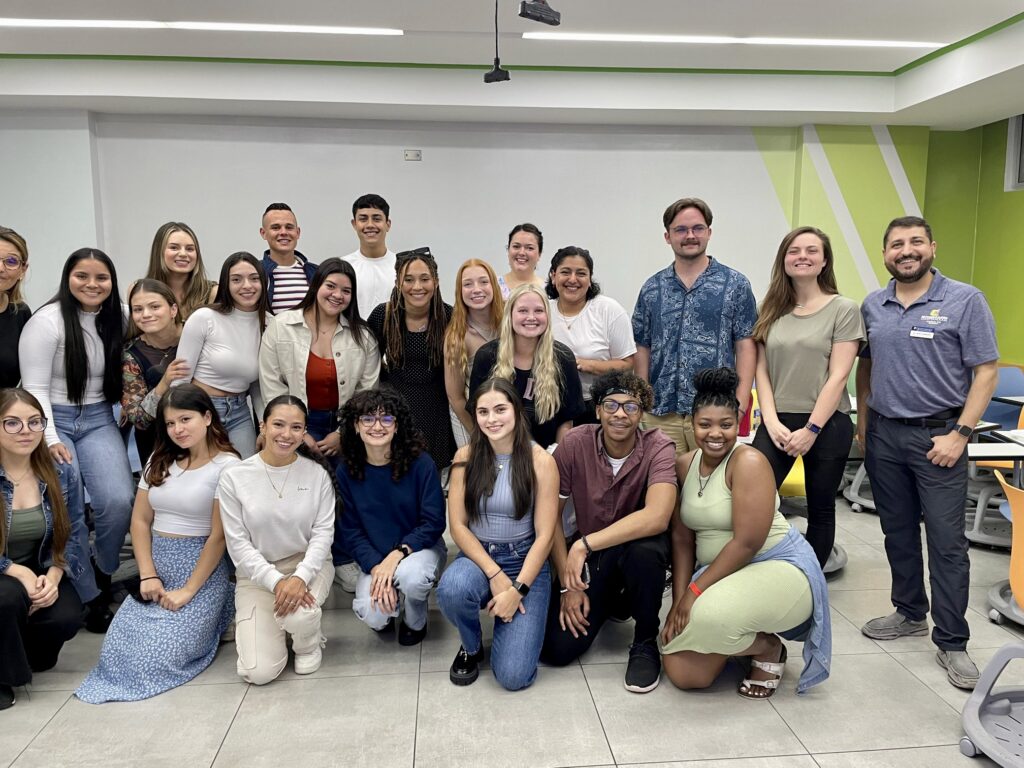
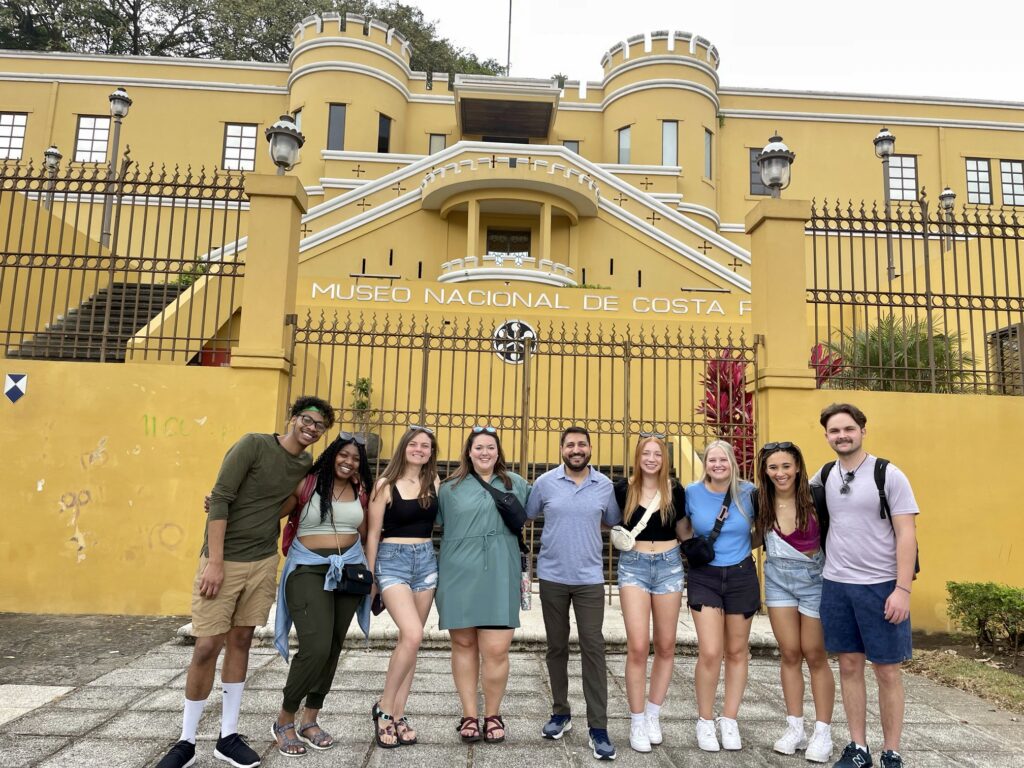
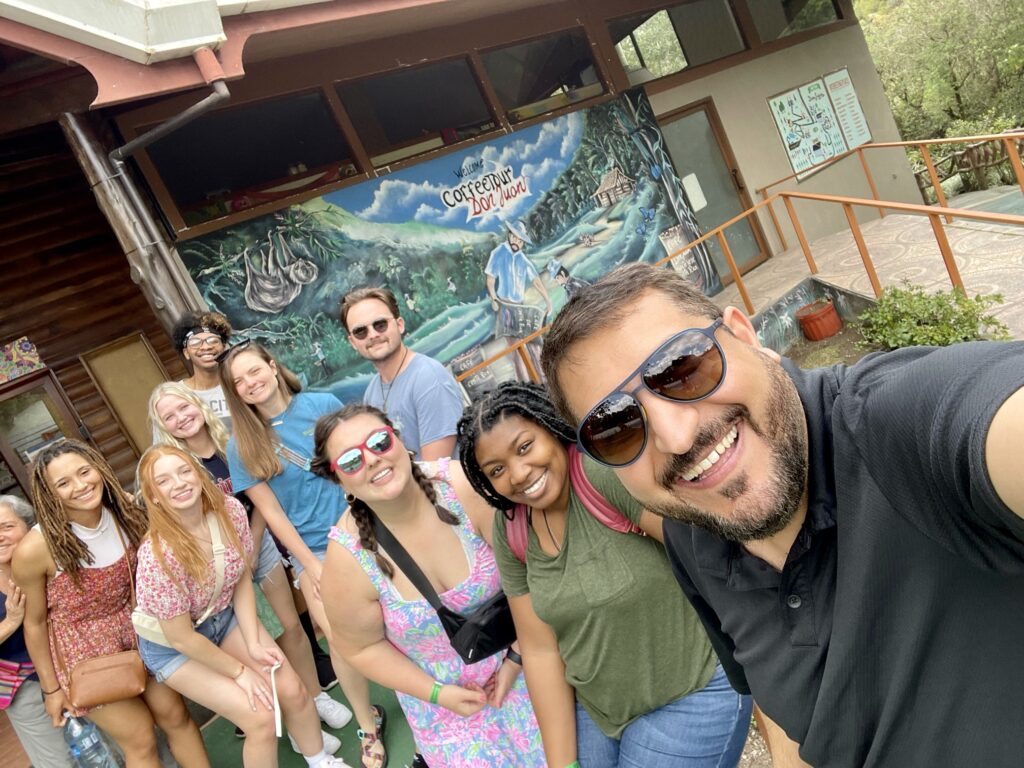
We also had the opportunity to speak with students at a local university. During this time, we learned more about food and culture in the country’s different regions and got to have personal conversations with a few of the students. I learned from talking with one of the girls that skin cancer is the number one cancer in Costa Rica. This makes sense due to the proximity to the equator and many citizens having field jobs. I plan to make a presentation on how to prevent and detect possible skin cancer, which could be shared on other trips for one of my PHE projects.
Finally, I wanted to touch on the overall experience of this trip. The language barrier created some problems for most of the trip. We relied heavily on our tour guide to help us get around and be truthful with what was being said. However, there were many times that this did not occur. There was frustration from the whole group by the end of the trip with this. There was also the group dynamic between undergrad and graduate students. Everyone is in a different stage of life, and working as a group to make plans was an experience. This was something I had yet to consider before the trip. There is much more to be said about this trip and my experience, but I am keeping this short. I am very grateful I got to participate in this trip and will cherish the memories forever.
Arianna Azcona (MPH) spent Spring Break 2023 participating in a faculty-led trip to Costa Rica with the HHP department. Arianna had the following to say about studying abroad, “Don’t eat where there are monkeys.”
Share this post:
Leave a Reply